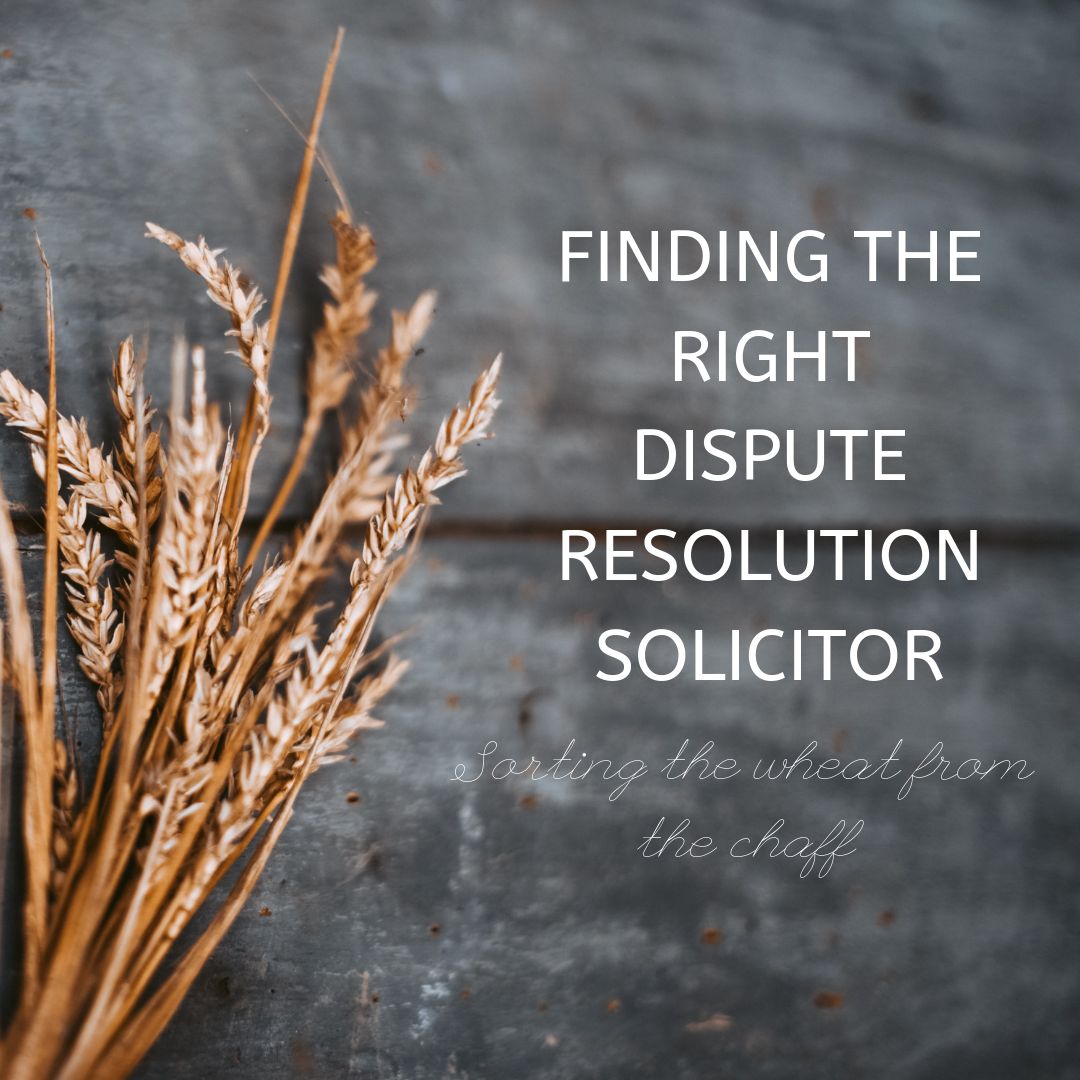With over 71 000 solicitors in Australia, finding legal representation can be an overwhelming task. This is particularly the case for dispute matters. Why? Because dispute resolution is not just a commercial decision, it is personal! Let’s be frank, all lawyers have a law degree, all qualified lawyers are admitted to practice in the court, what makes the difference is the quality of their experience and whether you can trust them. Trust is personal, and without trust, your ability to achieve the best outcome for you is diminished.
Whether you are pursuing or responding to a claim, be it for a contested estate, elder law matter, beneficiary claim, executor dispute ; breach of trust matters and the like; disputes are plain stressful and demanding. Having the right solicitor for you, the right solicitor with the right experience, guiding you through a complex, overwhelming and at times confusing legal process, is critical. Trust and confidence in the relationship you have with your solicitor is essential for your commercial and personal wellbeing.
So how do you sift through the cacophony of solicitors claiming to be that person?
Expertise
Is your lawyer’s claim of expertise supported by an independent body? Are they a QLS Accredited Specialist? Queensland Law Society’s Specialist Accreditation program provides accreditation in 10 areas of specialty. Successful completion of the program formally recognises the solicitor as having a high level of competency and knowledge in their chosen area of legal practice. They are recognised as leaders in their area of expertise.
QLS Accredited specialists have extensive experience, and have successfully completed an advanced, peer reviewed assessment program specific to their area of expertise. To find out more, click this link: https://www.qls.com.au/For_the_community/Find_an_accredited_specialist
Experience
Does the solicitor have the backing of their governing professional body? In Queensland, that is the Queensland Law Society (QLS). Not all solicitors can be members of the QLS. Is your solicitor a member of the QLS? If not, then alarm bells should ring and questions ought to be raised about suitability. Have they had their license to practice law suspended, revoked or refused? To find out more, click this link: https://www.qls.com.au/For_the_community/Find_a_solicitor
If they are a member of the QLS, is that solicitor on a QLS referral list? QLS vets their suitability for you. If QLS confidently recommends them, then you can be confident of their expertise and experience. To find out more, click this link:
https://www.qls.com.au/For_the_profession/Practice_support/Schemes_services/QLS_referral_service
Does the solicitor or the law firm they work for have the support and recognition of other professional organizations? If so then you know their colleagues and the commercial world respects their skills.
Are they sought after for their expertise by industry bodies, such as legal education providers? Do they present at industry conferences and seminars? If so then that is another indicator of industry recognition and respect for their expertise and experience. For example is your Estate and Trust solicitor a member of the Society of Trust and Estate Practitioners? To find out more see this link: https://www.step.org/about-step
Do their clients and colleagues recommend them? In a world full of social media, self-promotion and marketing spiel, the ye olde personal endorsement is still one of the best ways to choose your solicitor.
Keep in mind that simply having a law degree is not enough. It is illegal to practice law without being licenced. That process involves passing rigorous tests as to both qualifications and suitability – is the solicitor a fit and proper person to practice law?
Personality
Our decline as we age, the death of a loved one is confronting. It presents all manner of difficulties. Succession and Elder Law is not simply black and white. It is not black letter law. It requires more than a sharp mind and technical skills. It requires a deft, nibble footed approach whilst remaining sensitive to your needs. It requires expertise and skill in navigating both the technical issues and the personalities. Does your solicitor have both? Do they have the ability to take a matter to a trial if needed, whilst aiming at all times to reach a resolution that fits you? Why? Because in Qld we have a legislated process of engaging in alternative dispute resolutions. ADR is not a soft option, it is an option that takes the decision making out of the hands of the court and puts it back into your hands. This requires negotiating skills. Negotiating, is not about chest beating and swagger. It requires both technical knowledge and people skills. Does your solicitor have the respect and trust of their colleagues and opponents? Can they work with others to achieve an outcome?
The Firm’s Values
Do the values of the law firm fit with your needs? To answer this question, you might ask these questions:
- Does the law firm have a structure that supports their solicitors, thereby supporting you?
- Does the Law firm have deep ties to the community – will they be in practice tomorrow?
- What is their history?
- Do you know who the Partners/ Directors are?
- Do they have an actual office?
There is much hype and excitement around “digital disruption”, be careful that hype isn’t a smoke screen for a fly by night operation. We recommend you look for a law firm that combines the best of both worlds – a traditional presence, while utilizing technology to deliver superior, more efficient services to you.
When confronted with the complex nature of Succession and Elder Law and the legal jargon that follows, having the right representation can be the difference in sorting the wheat from the chaff, in the crowded field.
To discuss your Succession and Elder Law matter please call us on:
(07) 55 294 548.
Should you wish to download a copy of this article please click HERE.

